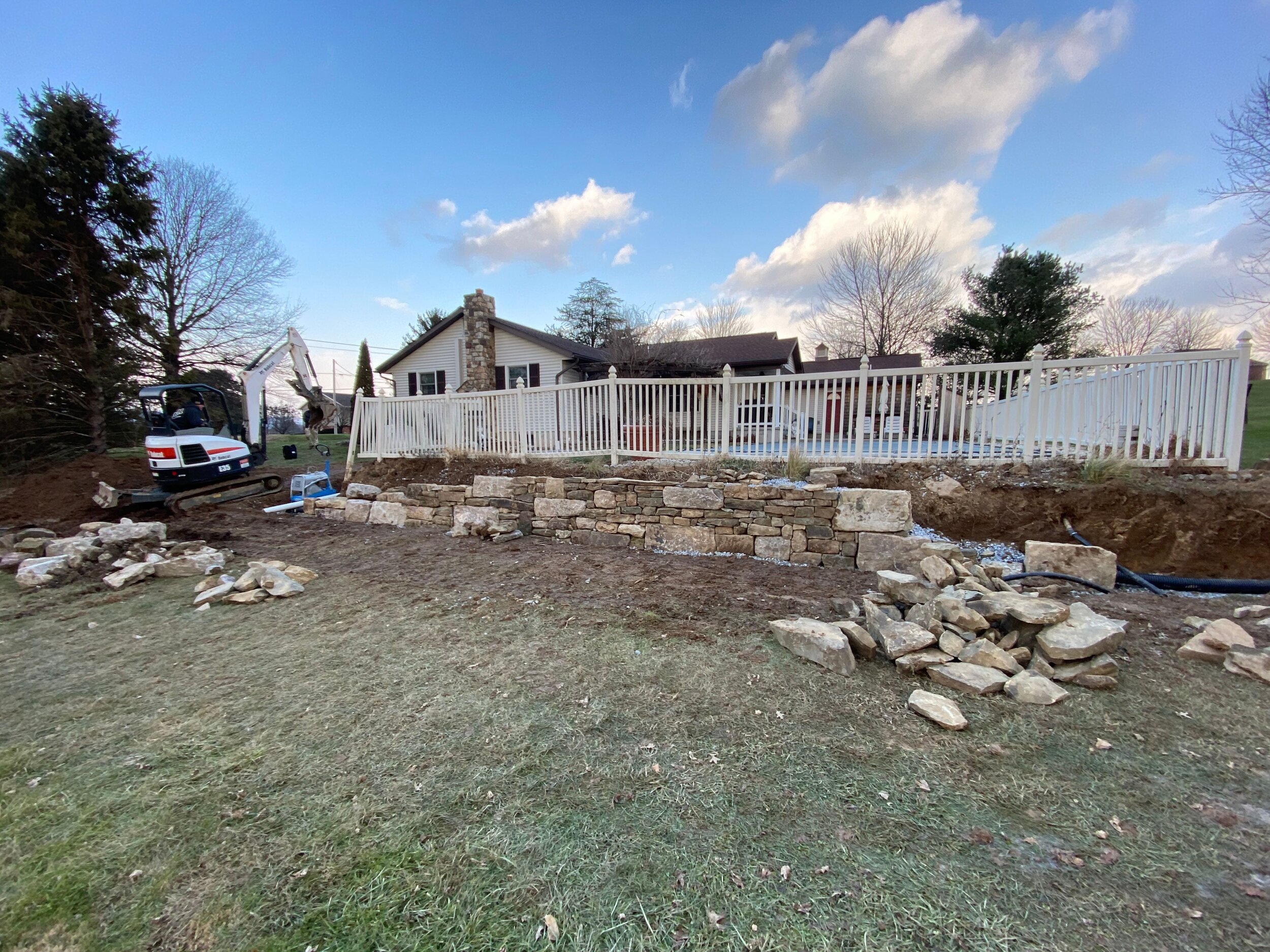Winter can be an incredibly difficult time for your landscape, especially the lawn, if certain steps aren’t taken. Sometimes the damage seems like it’s going to be a very long time before your lawn is restored to its original beauty. Landscaping professionals can prevent this damage with regularly scheduled lawn maintenance that takes place throughout the year. Investing in maintenance is more cost-effective than damage control. Here’s how a landscape contractor addresses winter damage with lawn care in Reading, PA.
Related: How a Landscape Contractor Minimizes Winter Damage to Backyard Designs in Allentown PA
Late Winter Assessment
First, what damage can winter do to a lawn? Damage from plows, drought, and poor soil are the top three lawn killers.
Any damage that occurred in the previous year (such as weeds, damage from snowplows, or poor soil) will quickly manifest in the spring as the growing season starts. That’s why it’s important to begin work before the growing season begins.
Set up a site visit soon so that your landscaping contractor can test your soil and based on that, put together a plan for your lawn to give it the best chance to grow a robust root system during the growing season so that your lawn is ready for dormancy next winter.
Snow removal should be a big priority during the winter. Improper shoveling and snow-moving techniques can easily damage a lawn when it’s at its most vulnerable. Plowed snow is very heavy and doesn’t gently blanket the snow like natural snowfall, which slowly releases water to the roots; instead, plowed snow clumps together and buries and smothers the lawn.
A snow removal contract is a better option than simple snow plowing where you end up with not only huge piles of heavy, wet snow on your landscape, but scrape marks from the plows.
Early Springtime Repair and Fertilizing
Just as March brings the first days of the spring thaw, it’s time for your lawn care professionals to jump into action and start working on any parts of the lawn that need to be nurtured or replaced. A strong but eco-friendly fertilizer should be carefully applied and thoroughly watered into the root system so that the grass can start strengthening itself. This is also the time to schedule regular mowing throughout the spring, summer, and fall.
At the same time, weed management will ensure that available resources are going to the turf grasses and not weeds. Weed control may need to happen several times a season, but it will help your lawn thrive in winter as the grass isn’t competing for water or nutrients.
Lawn Care Through the Summer
What does summer care have to do with winter damage? Plenty! If a lawn is stressed due to heat, drought, insects, or weeds, it’s not going to have the resources to overwinter well. Your lawn care professionals will keep the grass healthy during the stresses of summer so that it can enter the winter with a robust and healthy root system. This will include fertilization, proper mowing, and of course watering. Investing in an irrigation system can often be the difference between a lawn that’s healthy enough to withstand temperature extremes and one that’s barely making it.
Planning Through the Fall And Into The Winter
The grass will continue to grow until the temperatures often fall below freezing. Your lawn care professionals will keep up with regular mowing, and apply fertilizer to bolster late-season root growth just in time to help prepare the turf for the deep freeze of winter.
Related: Here's Why You Should Care About Proper Lawn Care in Berks County PA


